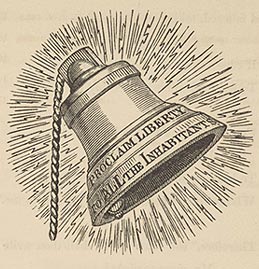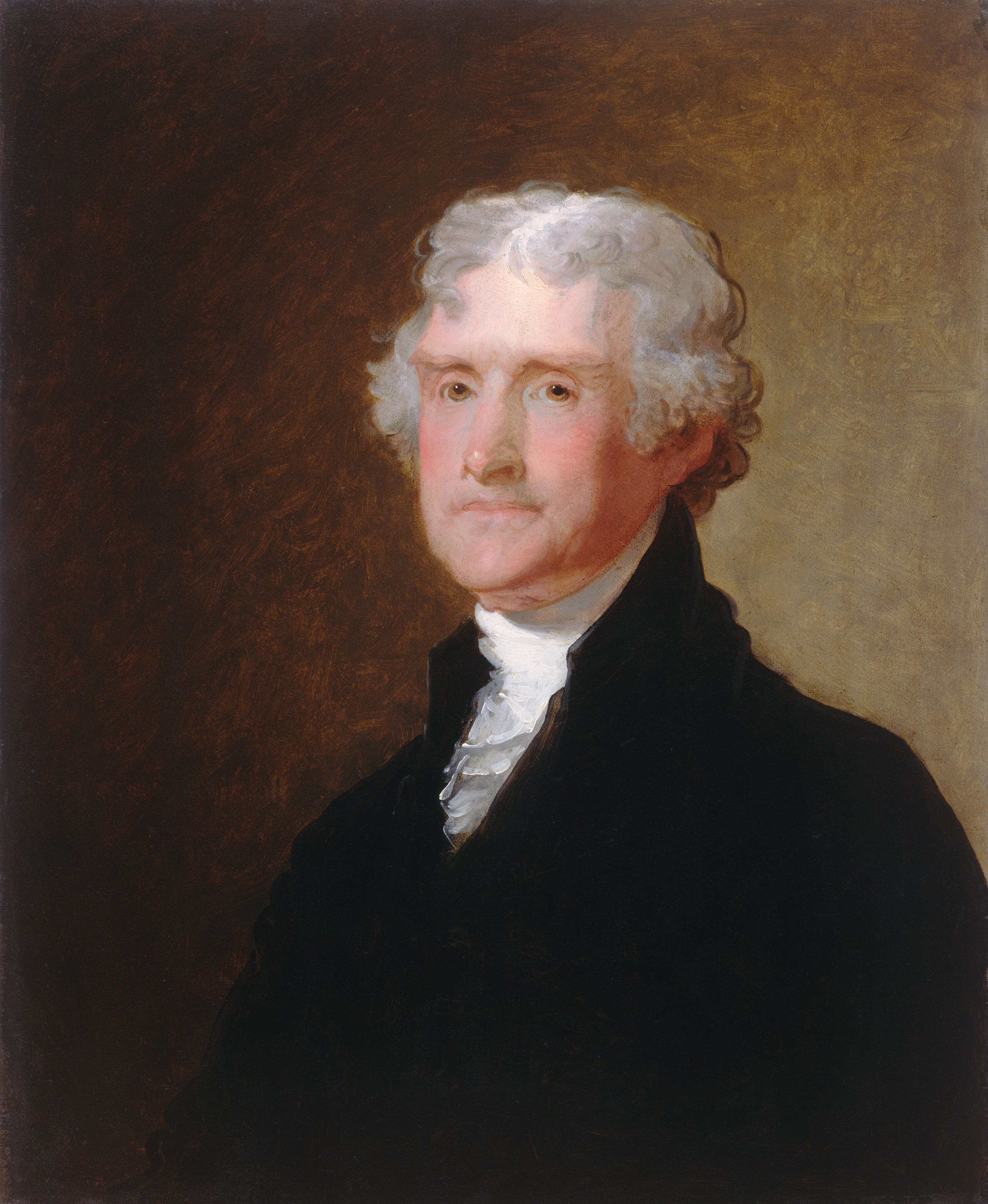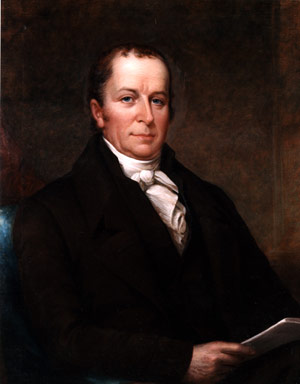PoD and Adams I
This is a look at what a few Alternate Party Systems might have looked like in the United States of America. PoD is Jefferson's 1784 proposal to ban slavery in new states goes through, instead of just in the Northwest. The changes early on are gradual, but eventually this will lead to a completely changed American political landscape and America itself.
The First Republic (1787-1838):

"We hold these truths to be self-evident, that all men are created equal; that they are endowed by their Creator with inherent and inalienable Rights; that among these, are Life, Liberty, and the pursuit of Happiness"
1784: Jefferson's proposal to ban slavery in new territories barely passes, much to the chagrin of many in the south.
1788: States ratify the Constitution, largely unchanged from OTL. Many Southerners are unhappy with this legislation, but figure they will be able to get around it in some of the Southern Western territories. George Washington is elected President.
1792: Washington is re-elected. Kentucky enters the Union as a Free State after a vote, despite the fact they should already be free. Besides this, events have proceeded mostly as OTL both abroad and in policy, and will continue to do so unless otherwise states prior to 1800.
1796: Tennessee enters the Union as a Free State after their own vote. Most slave owners leave the state for the new Southern Western territories currently controlled by Georgia, where they believe they have the power to ignore Jefferson's law. They are right, and the Federal Government doesn't press the issue with so many other problems.
John Adams is elected as the first Federalist President, as OTL. However, the second PoD is that Hamilton does not work to have Pinckney elected over Adams, and the two remain uneasy allies. Thus begins the First Party System of the United States. It will not be the last.
1800: Due to the Federalists mostly sticking together, they win New York and therefore the election of 1800. Adams and Pinckney serve another term as President and Vice President.

Disclaimer: States lines on this map do not necessarily represent the State lines the U.S will end up with, though I do intend for the size of the country to remain roughly unchanged.
1801: Adams allows the controversial Seditions Act to expire in 1801, facing fierce Republican opposition in Congress. Alexander Hamilton argues strongly against this, but after his antics in the American Army and general refusal to be subordinate to his own President, Adams is not inclined to listen. It is at this point that the two completely fall apart, and Hamilton resigns as Treasury Secretary in 1802.
1803: The Louisiana Purchase goes right ahead, as OTL.
There is a bit of a kerfuffle over Ohio's entry to the Union, as it enters as a Free State without holding any vote. Even though it would have almost certainly voted to become a free state, southerners argue that they should have held a vote anyways. This is countered by the fact that legally, none of this should be in question, as all new States are supposed to be free. Once assuming they would be able to create new slave states in both the old Southwest and parts of the Louisiana Purchase, proponents of slavery now worry that they may become surrounded and outvoted by the North, threatening the future of the institution of slavery.
1804: Though the controversy with slavery will eventually come to define the Federalist v. Republican Era, neither candidate in 1804 brings up the issue much at all. Different problems are focused upon: for his part, Jefferson highlights the large National debt of almost $100 million, attacking Adams, Hamilton, and a large government that he claims doesn't represent the people. Meanwhile, Hamilton attempts to take over the Federalist Party and nominate a candidate of his choosing. However, he underestimates his unpopularity both among the party and the in the country as a whole, and Adams (who, following Washington's tradition, only chooses to serve for two terms) manages to get his Vice President, Pinckney, selected as the Federalist candidate. Hamilton throws the political equivalent of a temper tantrum, writing and giving speeches bashing Adams, Pinckney, and various other Federalist leaders at every turn. Jefferson wins handily and Republicans seize government without too much difficulty.

The First Republic (1787-1838):

"We hold these truths to be self-evident, that all men are created equal; that they are endowed by their Creator with inherent and inalienable Rights; that among these, are Life, Liberty, and the pursuit of Happiness"
1784: Jefferson's proposal to ban slavery in new territories barely passes, much to the chagrin of many in the south.
1788: States ratify the Constitution, largely unchanged from OTL. Many Southerners are unhappy with this legislation, but figure they will be able to get around it in some of the Southern Western territories. George Washington is elected President.
1792: Washington is re-elected. Kentucky enters the Union as a Free State after a vote, despite the fact they should already be free. Besides this, events have proceeded mostly as OTL both abroad and in policy, and will continue to do so unless otherwise states prior to 1800.
1796: Tennessee enters the Union as a Free State after their own vote. Most slave owners leave the state for the new Southern Western territories currently controlled by Georgia, where they believe they have the power to ignore Jefferson's law. They are right, and the Federal Government doesn't press the issue with so many other problems.
John Adams is elected as the first Federalist President, as OTL. However, the second PoD is that Hamilton does not work to have Pinckney elected over Adams, and the two remain uneasy allies. Thus begins the First Party System of the United States. It will not be the last.
1800: Due to the Federalists mostly sticking together, they win New York and therefore the election of 1800. Adams and Pinckney serve another term as President and Vice President.
Disclaimer: States lines on this map do not necessarily represent the State lines the U.S will end up with, though I do intend for the size of the country to remain roughly unchanged.
1801: Adams allows the controversial Seditions Act to expire in 1801, facing fierce Republican opposition in Congress. Alexander Hamilton argues strongly against this, but after his antics in the American Army and general refusal to be subordinate to his own President, Adams is not inclined to listen. It is at this point that the two completely fall apart, and Hamilton resigns as Treasury Secretary in 1802.
1803: The Louisiana Purchase goes right ahead, as OTL.
There is a bit of a kerfuffle over Ohio's entry to the Union, as it enters as a Free State without holding any vote. Even though it would have almost certainly voted to become a free state, southerners argue that they should have held a vote anyways. This is countered by the fact that legally, none of this should be in question, as all new States are supposed to be free. Once assuming they would be able to create new slave states in both the old Southwest and parts of the Louisiana Purchase, proponents of slavery now worry that they may become surrounded and outvoted by the North, threatening the future of the institution of slavery.
1804: Though the controversy with slavery will eventually come to define the Federalist v. Republican Era, neither candidate in 1804 brings up the issue much at all. Different problems are focused upon: for his part, Jefferson highlights the large National debt of almost $100 million, attacking Adams, Hamilton, and a large government that he claims doesn't represent the people. Meanwhile, Hamilton attempts to take over the Federalist Party and nominate a candidate of his choosing. However, he underestimates his unpopularity both among the party and the in the country as a whole, and Adams (who, following Washington's tradition, only chooses to serve for two terms) manages to get his Vice President, Pinckney, selected as the Federalist candidate. Hamilton throws the political equivalent of a temper tantrum, writing and giving speeches bashing Adams, Pinckney, and various other Federalist leaders at every turn. Jefferson wins handily and Republicans seize government without too much difficulty.
Last edited:


